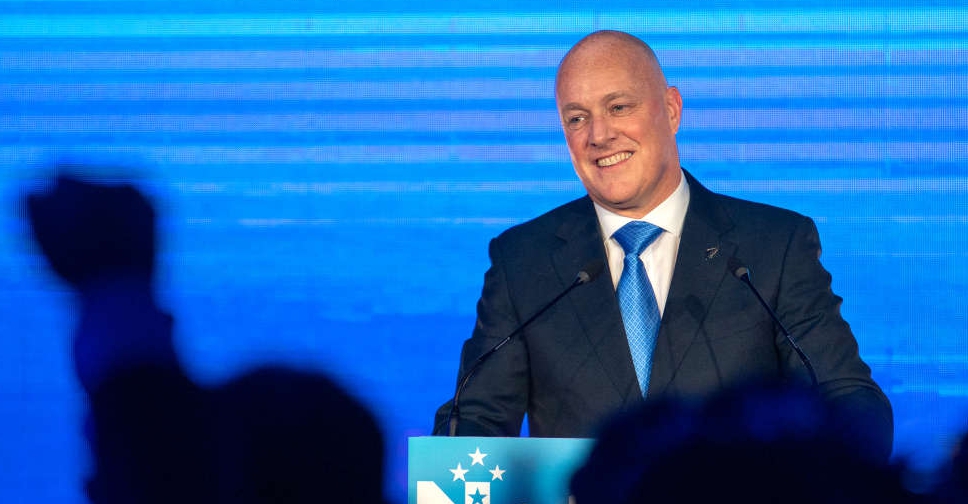
New Zealand's centre-right National Party led by Christopher Luxon will form a new government with its preferred coalition party ACT, as Prime Minister Chris Hipkins conceded his Labour Party could not form a government after Saturday's general election.
The National Party, now in opposition, had 39 per cent of the votes with 92 per cent counted, while the ACT party had 9 per cent. That would give the two parties enough seats to form a government, according to the Electoral Commission.
National won over voters by promising relief for struggling middle-income New Zealanders, and to bring historically high inflation under control while reducing the country's debt.
Under former leader Jacinda Ardern, Labour in 2020 became the first party to capture an outright majority since New Zealand switched to a mixed member proportional system in 1996.
But Labour has since lost support, with many New Zealanders disgruntled over the country's long COVID-19 lockdown and the rising cost of living.
Hipkins has tried to re-engage with those voters, focusing on what he termed "bread-and-butter issues", but was unable to gain traction in the polls.
The National-ACT majority is slim and the two parties may need support from the populist New Zealand First Party to form a government. Coalition negotiations between National and ACT are expected to begin in the coming days.
There are normally 120 seats in parliament but because the Te Pati Maori's four seats from constituencies exceeded its share of the national popular vote, the electoral system calls for creating additional proportional seats to even out representation. This will alter the final seat tally.
In addition, the final vote count, which includes overseas and special votes, is not due until November 3. Special votes have historically made slight changes to the outcome, adding seats for the left at the expense of the right-leaning bloc.
Labour's losses were significant, with some high-profile members of the party failing to hold onto their seats. Nanaia Mahuta, the foreign minister, lost her constituency seat and will not be returning parliament.

 UK inquiry finds 'chilling' cover-up of infected blood scandal
UK inquiry finds 'chilling' cover-up of infected blood scandal
 Iranian President Raisi killed in helicopter accident, state media says
Iranian President Raisi killed in helicopter accident, state media says
 ICC prosecutor seeks arrest warrants for Israeli, Hamas leaders
ICC prosecutor seeks arrest warrants for Israeli, Hamas leaders
 Assange given permission to appeal against US extradition
Assange given permission to appeal against US extradition
 Israel intends to broaden Rafah sweep, Defence Minister tells US
Israel intends to broaden Rafah sweep, Defence Minister tells US




